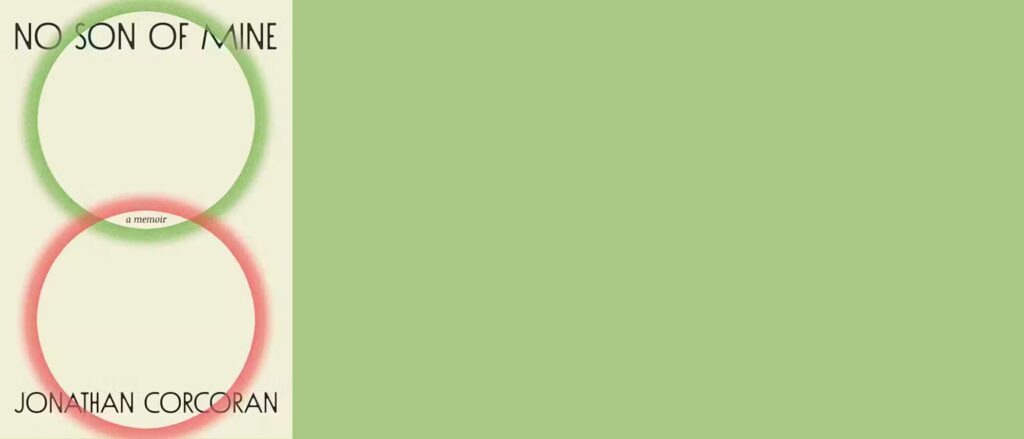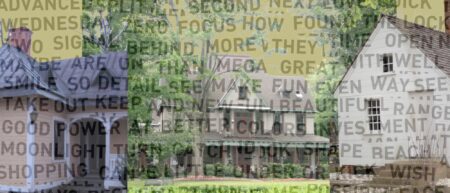Shame nearly prevented me from writing my memoir.
Even now the vestiges of shame make me hesitant to talk about my life and what happened. Even now, I ask myself: Was I scared to tell this story because I was afraid to hurt my mother while she was still alive (which implies that truth is too much for a body to handle)? Or was I hamstrung by the idea that I had some part in this, that I was to be assigned a portion of the blame?
What I want to say is straightforward: I grew up in an evangelical family in rural West Virginia. I want to say that the day I turned twenty years old, my mother found out my secret–that I was gay–and during a phone call on the evening of my twentieth birthday, she declared me no longer her son. For fifteen years, until she died, we both struggled, though I found a path to freedom.
Where is the shame in telling this story?
Everywhere. Shame is insidious.
On the eve of my book’s entrance into the world, even as I type these words, I want to qualify every statement I make.
We were religious, but we weren’t.
My mother disowned me, but then she took me back.
It was her fault, but it also wasn’t.
Shame makes me double back, second guess, and filter. Will my sisters be angry that I aired our family’s dirty laundry? Will someone from our old Nazarene church read this story and put my name up for prayer (just another sinner lost to the world)?
As a writer, I know that shame has the potential to stop me before I’ve started. And so, I find myself grasping for the right metaphor; something about battle, something about heaviness. I circle these words for the right image, for that path forward.
Shame comes from many places. In my case, I find its first roots in religion, the evangelical upbringing to which I alluded. But I’ve been wondering more and more if the shame I came to know didn’t have its start in family secrets–in the keeping of them and in making others bear the burdens of this dark weight.
Secrets become family heirlooms. They’re passed on generationally, and sometimes they’re forgotten, but they’re never lost. They’re written in our DNA and shape our bodies, they emerge as quirks, as fears, as anxiety.
My mother inherited these heirlooms: she never knew the name of her father, for example. Relations out of wedlock were a kind of small-town, 1940s shame that marked my grandmother so fiercely that she’d take that man’s name to the grave. The emptiness–created in part by the secret of this man’s name–consumed my mother, and this half-eaten version of my mother began to consume me.
I’d find myself chewed to the pulp by a woman who loved the people in her life ferociously and sometimes violently. I was an adolescent and then a teen with my own secret life, a coming awareness of my sexuality. My mother loved me so deeply that I just knew I had to keep my secret buried–as much for my sake as hers.
This was my inheritance–to know that I owed my mother–because my body had come from her, that my physical presence was a small part of the reason she persisted in the world, that I helped fill the void left by the absence of her own father.
I’ve come to see fear as a kind of shame, and if you get to the root of it, fear is about control. I was my mother’s son, and then one day, I was my mother’s gay son. She was deeply religious, yes, but she also didn’t want others to know about me, or as she would come to think of it, what happened to me. Like her mother before her, she thought it best that some things never be spoken. The people she worried might find out her secret (me) were our family members, the church, and the neighbors who shared our small, mountain town.
When we lose control, we act out, we try to box in the things that take control away from us. When I “became” gay, I was no longer in my mother’s control. She wanted to hide that version of me from the world, to rewrite the story.
I too feared losing control. At first, I feared the loss of my soul, and then I feared the loss of my home and my family. But when I began to understand and accept who I was at the core, I feared losing the story I told myself–how it happened, why it happened, even when it happened.

I wrote version after version of this story in an act of self-preservation. I wrote in notebooks and Word documents and in emails. I had to remind myself that our relationship was messy, both before and after that fateful day. I was her golden child and then she would cast me out and then she would reel me back in. I lost track of the origin and end points: the moments that kicked off the years of fighting; the moments that resulted in our brief pax romanas; the moments that would beget years of silence.
When I look at the first words I tried to write about all of this–the words I wrote when she was still living–I now see this desperation. There is a voice screaming for someone to listen to the raw details. But something is missing in those words–scenes cut, emotions truncated. My mother’s watchful eye lurks behind each of those paragraphs. That watchful eye, that judgment, that implied shame, won the day back then. Shame prevented me from telling the story I needed to tell, which was the unadorned truth.
It wasn’t until my mother died, during the spring of 2020, that I was able to make our story cohere. I suppose I needed permission to declare an end to what happened. I suspect many who’ve experienced family estrangement will relate to my experience. Estrangement is like a death with no ending.
And this, I think, is the lesson for writers, but also for any of us humans: When we let shame control us–our habits, our processes, our minds–when we resist confronting the messiness of our lives, we lose an opportunity. By looking directly at events, by seeing them honestly, by speaking the truth of what happened–or at least as close as we can get to these truths–we free ourselves.
I wrote a memoir so that I could start to gain control over my life. And my life isn’t over (I’ll turn 40 this year). I feel now, more than ever, that I have some power over where this story goes. For years I let shame dictate the parameters not just of my past, but of my present and future.
My mother was many things to many people, just as my life is more than my relationship with her. I was disowned for being gay, and it wasn’t my fault. I have nothing to hide. Others have learned this lesson before me. I’m not convinced this story gets old or clichéd.
There is no shame in telling our truths.
—
Jonathan Corcoran is the author of No Son of Mine and The Rope Swing: Stories, which was long-listed for the Story Prize and a Lambda Literary Awards finalist. His essays and stories have been anthologized in Eyes Glowing at the Edge of the Woods: Fiction and Poetry from West Virginia and Best Gay Stories. Corcoran teaches writing at New York University and resides in Brooklyn, New York.




Another West Virginia writer visiting the Rutgers’ MFA program, or maybe it was the day I escorted her (Irene McKinney) to New York for her reading at The Poetry House, told me that in her past she was packing up her home and moving, selling some things she no longer had use for, loading the rest on a truck. Her dog was in the back of her pickup truck and someone offered her $10 for him. She took it. She looked at me and said, “The look on that dog’s face as I drove off… I will never forget it.” Then she said, “We write from our shame.” I never forgot that story or that lesson so I’m sharing it with you with a virtual hug. I’ve written from that place as well. I don’t know what is more difficult than that.